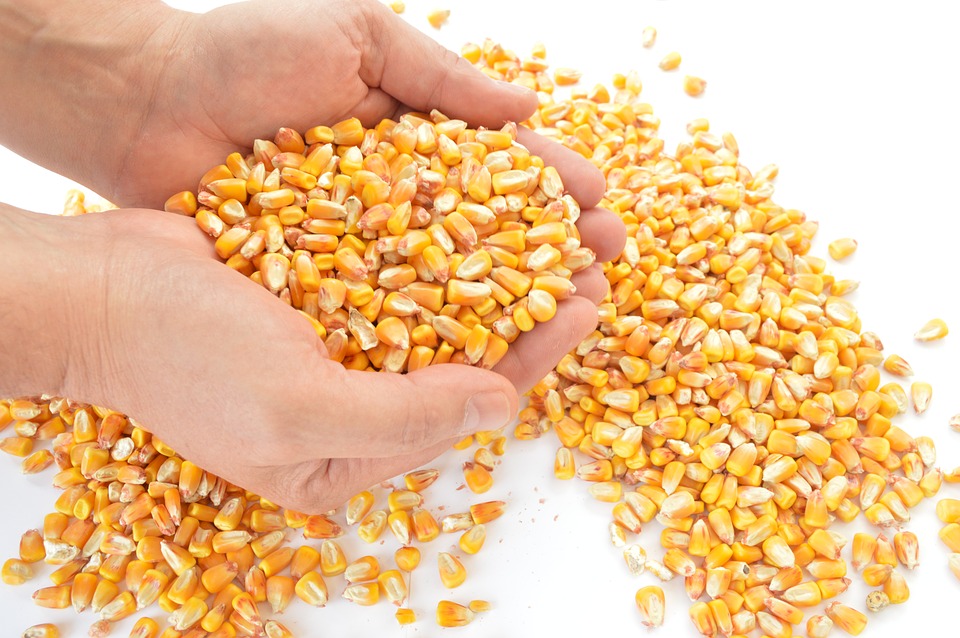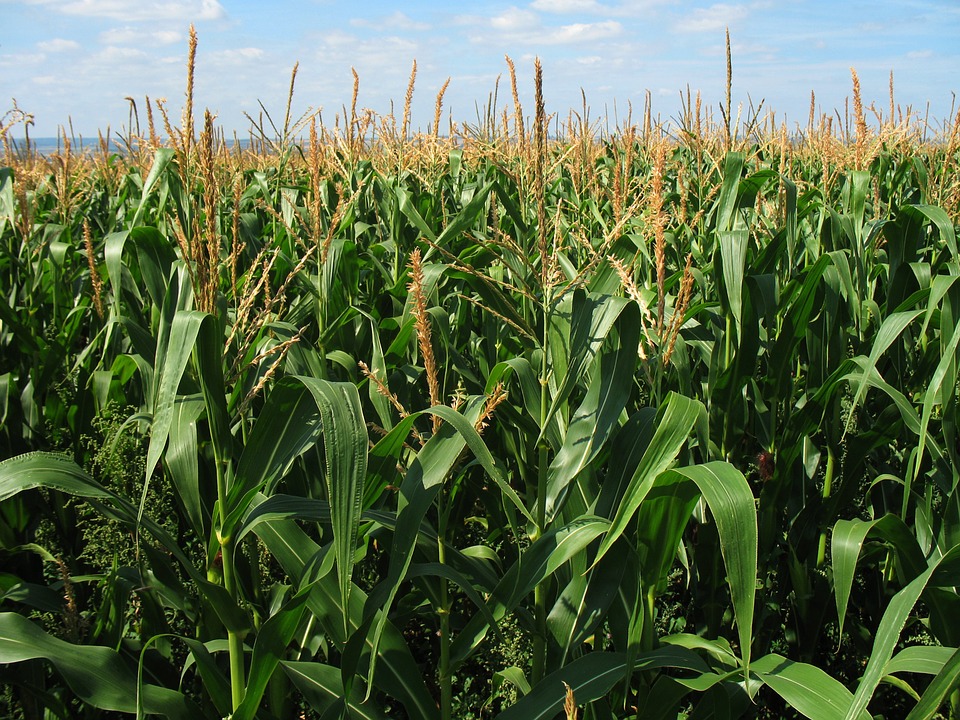This comprehensive guide delves into the question of whether rabbits can safely consume corn and provides essential information on creating a balanced and healthy diet for your furry companion. We'll explore the nutritional value of corn, its potential benefits and risks for rabbits, and offer practical tips for incorporating it into your rabbit's diet, if at all.
Part 1: Understanding Rabbit Digestive Systems

1.1. The Unique Digestive Tract
Rabbits have a unique digestive system that requires constant fibre intake for proper function. Their digestive tract is designed to process high-fibre, low-calorie foods, which plays a vital role in their overall health.
1.2. The Importance of Caecotrophy
Rabbits practice caecotrophy, which is the consumption of their own soft faeces. These caecotrophs are rich in essential nutrients and vitamins, crucial for maintaining a healthy gut microbiome.
1.3. The Role of Fibre in Digestion
Fibre is crucial for stimulating gut motility, ensuring regular bowel movements and preventing digestive problems. A lack of fibre can lead to health issues like stasis, a life-threatening condition where the digestive system slows down.
Part 2: The Nutritional Value of Corn

2.1. Carbohydrates and Energy
Corn is primarily composed of carbohydrates, providing energy for the body. However, for rabbits, the high carbohydrate content can lead to weight gain and obesity, especially when consumed in excess.
2.2. Protein and Amino Acids
Corn contains a moderate amount of protein and essential amino acids, which are building blocks for muscle and tissue growth. However, rabbits can easily obtain sufficient protein from hay and leafy greens.
2.3. Vitamins and Minerals
Corn offers some vitamins and minerals, including vitamin E, thiamin, and niacin. However, these can be obtained from a balanced diet of hay, fresh vegetables, and high-quality rabbit pellets.
Part 3: The Potential Risks of Corn for Rabbits
3.1. High Carbohydrate Content and Weight Gain
Corn's high carbohydrate content can lead to excessive calorie intake, contributing to weight gain and obesity in rabbits. Obesity can increase the risk of health problems like heart disease, diabetes, and joint problems.
3.2. Low Fibre Content and Digestive Issues
Compared to hay, corn is low in fibre, which is essential for maintaining a healthy digestive system in rabbits. A lack of fibre can disrupt the digestive process, potentially leading to diarrhoea, gas, and stasis.
3.3. Potential for Dental Problems
Corn does not provide the necessary abrasive texture to help wear down a rabbit's continuously growing teeth. This can lead to overgrown teeth, which can cause pain, difficulty eating, and other health problems.
Part 4: Can Rabbits Eat Corn?
4.1. The Short Answer
While rabbits can technically consume small amounts of corn, it is not recommended as a regular part of their diet due to the potential risks associated with its high carbohydrate content and low fibre content.
4.2. The Risks Outweigh the Benefits
While corn offers some nutrients, the risks of obesity, digestive issues, and dental problems associated with its consumption outweigh any potential benefits for rabbits.
Part 5: Alternatives to Corn in Rabbit Diets
5.1. Hay: The Cornerstone of a Rabbit's Diet
Hay is the most important component of a rabbit's diet, providing essential fibre, promoting dental wear, and maintaining a healthy digestive system. Timothy hay is recommended for adult rabbits, while alfalfa hay can be offered for growing kits.
5.2. Fresh Vegetables: A Source of Vitamins and Minerals
A variety of fresh vegetables, including leafy greens, should be offered in limited quantities. These provide essential vitamins, minerals, and additional fibre for a balanced diet.
5.3. High-Quality Rabbit Pellets: Supplements, Not Staples
High-quality rabbit pellets can provide additional nutrients but should only be offered in limited quantities as a supplement to hay and fresh produce. Choose pellets specifically formulated for rabbits, avoiding those with added corn or other grains.
Part 6: Incorporating Corn Safely (If at All)
6.1. The Occasional Treat
If you choose to offer corn to your rabbit, it should be given in extremely small quantities, as an occasional treat. Offer it sparingly and monitor your rabbit's response.
6.2. Choose Whole, Unprocessed Corn
If offering corn, opt for whole, unprocessed corn kernels, avoiding sugary or processed corn products like corn chips or cornbread. These products contain added sugars and unhealthy fats that are detrimental to a rabbit's health.
6.3. Monitor for Signs of Digestive Distress
Carefully observe your rabbit for any signs of digestive issues after consuming corn, such as diarrhoea, gas, lethargy, or changes in appetite. If you notice any concerning symptoms, discontinue offering corn and consult your veterinarian.
Part 7: Understanding Your Rabbit's Dietary Needs
7.1. Factors Affecting Dietary Requirements
A rabbit's dietary needs can vary based on factors like age, breed, activity level, and overall health. For example, growing kits require more calories and nutrients than adult rabbits.
7.2. The Importance of Individualization
Every rabbit is unique, and their dietary needs may vary. Observe your rabbit's preferences and adjust their diet accordingly, always consulting with your veterinarian for guidance.
Part 8: FAQs - Corn and Rabbit Diets
8.1. Can I Give My Rabbit Popcorn?
No, popcorn is not suitable for rabbits. The high carbohydrate content, the potential for choking hazards, and the added butter or seasonings make it unsafe for consumption.
8.2. Is Corn on the Cob Safe for Rabbits?
No, corn on the cob is not safe for rabbits. The hard cob can be difficult to digest and potentially cause choking, while the kernels themselves can be a source of high carbohydrates and low fibre.
8.3. Can Rabbits Eat Corn Husks?
While corn husks are mostly fibre, they are not recommended for rabbits. They can contain pesticides or be difficult to digest. Additionally, they can contain sharp edges that could injure your rabbit's mouth.
8.4. Is Sweet Corn Safe for Rabbits?
Sweet corn is even higher in sugar than regular corn and should be avoided entirely. The high sugar content can lead to health problems such as dental issues and obesity.
8.5. What Should I Do If My Rabbit Eats Corn?
If your rabbit has accidentally eaten corn, monitor them closely for any signs of digestive distress. Offer plenty of fresh water and hay to help aid digestion. Consult your veterinarian if you notice any concerning symptoms.
Part 9: Conclusion: Prioritising a Healthy Diet
While a small amount of corn might not cause immediate harm to a healthy rabbit, it's crucial to prioritize a balanced diet rich in hay, fresh vegetables, and high-quality pellets. This approach ensures that your furry friend receives the necessary nutrients for a long and happy life. Remember, consult your veterinarian for personalized advice on your rabbit's dietary needs.
Everyone is watching
-

Do Rabbits Lay Eggs? (The Surprising Truth)
OTHER TYPES OF PETSThis article will unravel the common misconception that rabbits lay eggs, exploring the fascinating world of r...
-

What's a Group of Rabbits Called? (A Comprehensive Guide)
OTHER TYPES OF PETSThis article delves into the fascinating world of rabbits, exploring the various terms used to describe a grou...
-

Can Rabbits Eat Grapes? A Guide to Safe Rabbit Treats
OTHER TYPES OF PETSThis comprehensive guide will explore the safety and suitability of grapes for rabbits, providing detailed inf...
-

Predators That Hunt Rabbits: A Guide to Natural Enemies
OTHER TYPES OF PETSI've always been fascinated by the circle of life, that delicate dance between predator and prey. Growing up ...
-

Are Rabbits Nocturnal Animals?
OTHER TYPES OF PETSThe question of whether rabbits are nocturnal animals is a fascinating one, with a surprisingly complex answer...
